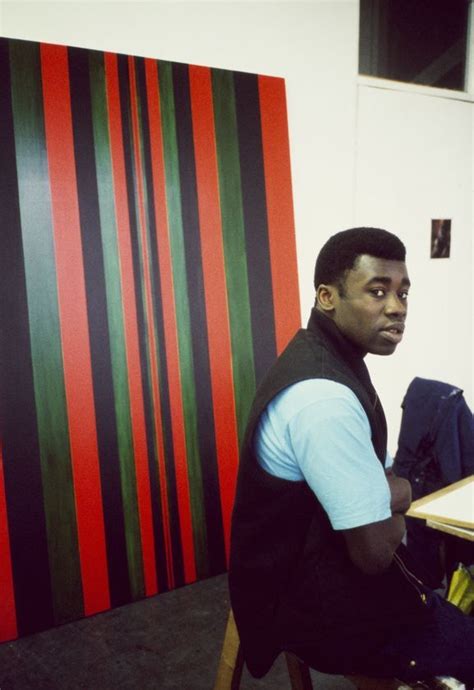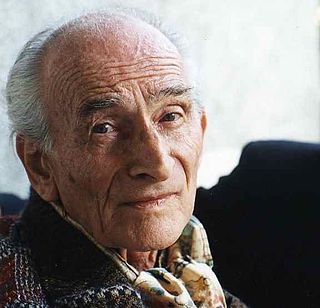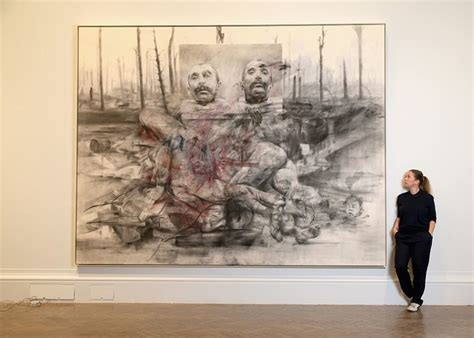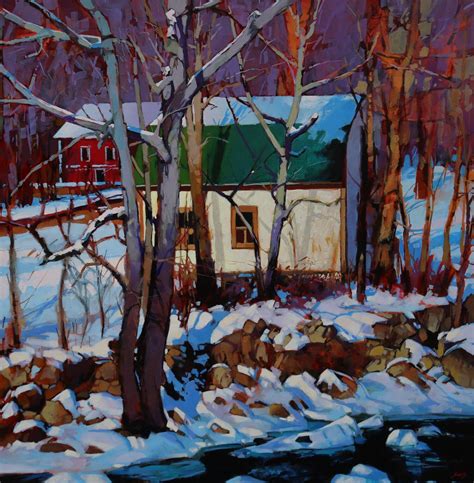A Quote by Chris Ofili
Related Quotes
I'm not anti conceptual art. I don't think painting must be revived, exactly. Art reflects life, and our lives are full of algorithms, so a lot of people are going to want to make art that's like an algorithm. But my language is painting, and painting is the opposite of that. There's something primal about it. It's innate, the need to make marks. That's why, when you're a child, you scribble.
I feel like what's most important for painting - which has been hierarchically on the top for a really long time in terms of what is considered fine art, by comparison with something like a comic book or what's considered low art - is that painting should open up laterally to include other cultures and things that don't immediately resonate as a painting but are obviously of equal contribution to the genre.
life's kind of like a painting. A really bizarre, abstract painting. You could look at it and think that all it is, is a blur. And you could continue living your life thinking that all it is, is just a blur. But if you really look at it, really see it, focus on it, and use your imagination, life can become so much more. The painting could be of the sea, the sky, people,buildings, a butterfly on a flower, or anything except the blur you were once convinced it was.
In fine arts, when you make a painting, it's just a painting. But if you make a painting in the entertainment industry, it can be an album cover or a t-shirt or a logo. I like that entertainment has this usefulness - that it's ultimately trying to make a bunch of people feel something, and to think about life and be able to use things that were so simple and direct but potentially have a really powerful effect.






































